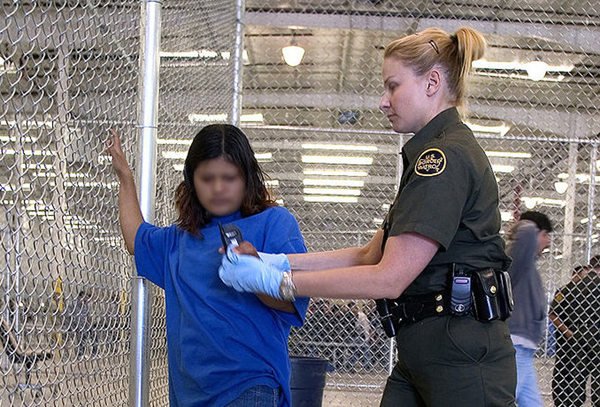- La Feria Community Holds Succesful Business Mixer Event
- Little Nashville to Take Place in Downtown Mercedes
- Lions Basketball Captures District Gold
- La Feria ISD Students Compete in Regional Chess Tournament
- Lions End First Half of 32-4A on a High Note
- La Feria ISD Held Another Successful Parent Conference
- Strong Appearance for Lions at Hidalgo Power Meet
- LFECHS Students Get to Meet Local Actress
- Students Participate in Marine Biology Camp
- Two LFECHS Students Qualify for All-State Band
Trump Signs Order to End Separations Condemned by Pediatricians
- Updated: June 29, 2018

The Texas Pediatric Society has characterized the practice of separating immigrant children from their parents as “inhumane and unnecessary.” Photo: Gerald L. Nino
by Eric Galatas
AUSTIN, Texas – Following widespread outrage over the forced separation of children from their parents arrested on suspicion of entering the country illegally along the southern U.S. border, President Donald Trump on Wednesday signed an executive order to end the practice.
Trump previously had said he could not end the separations, repeatedly blamed Democrats for them and said it was up to Congress to act.
Both Republicans and Democrats strongly opposed the separations, as did many ordinary Americans, and
medical and mental health experts.
Dr. Dennis Conrad, president of the Texas Pediatric Society, says separating and institutionalizing children can put their health at substantial risk.
He notes the initial impact is fairly clear to parents or anyone who has cared for children.
“Pictures of them crying and screaming, and wishing to remain with their parents as they’re forcibly removed, is evidence of the anxiety that they feel with that immediate separation and that fear,” he states. “That creates what’s called increased stress.”
If that stress continues over a period of time, Conrad says it creates what’s known as a toxic stress environment.
“Children who actually are in a persisting toxic stress environment do not develop appropriately,” he explains. “They’re subject to anxiety, night terrors, fear of separation and other adverse consequences.”
Conrad adds children separated for prolonged periods of time frequently don’t recognize a parent for direction and guidance, which can create additional problems if they’re reunited.
Forced separations are not unprecedented in the U.S. Children of slaves were often sold away from their parents, and after the Wounded Knee massacre, officials moved Native American children into government or church-run boarding schools.
Conrad says a body of research shows how disrupting a family unit can lead to long-term consequences.
“They have an increased risk for certain mental health problems, including depression,” he explains. “They have a potential for having higher suicide rates when they’re specifically looked at under those conditions. And they have a higher probability of substance abuse.”
The Texas Pediatric Society and the American Academy of Pediatrics have publicly condemned the separation of children from parents at the U.S. border, calling the practice “inhumane and unnecessary.”


